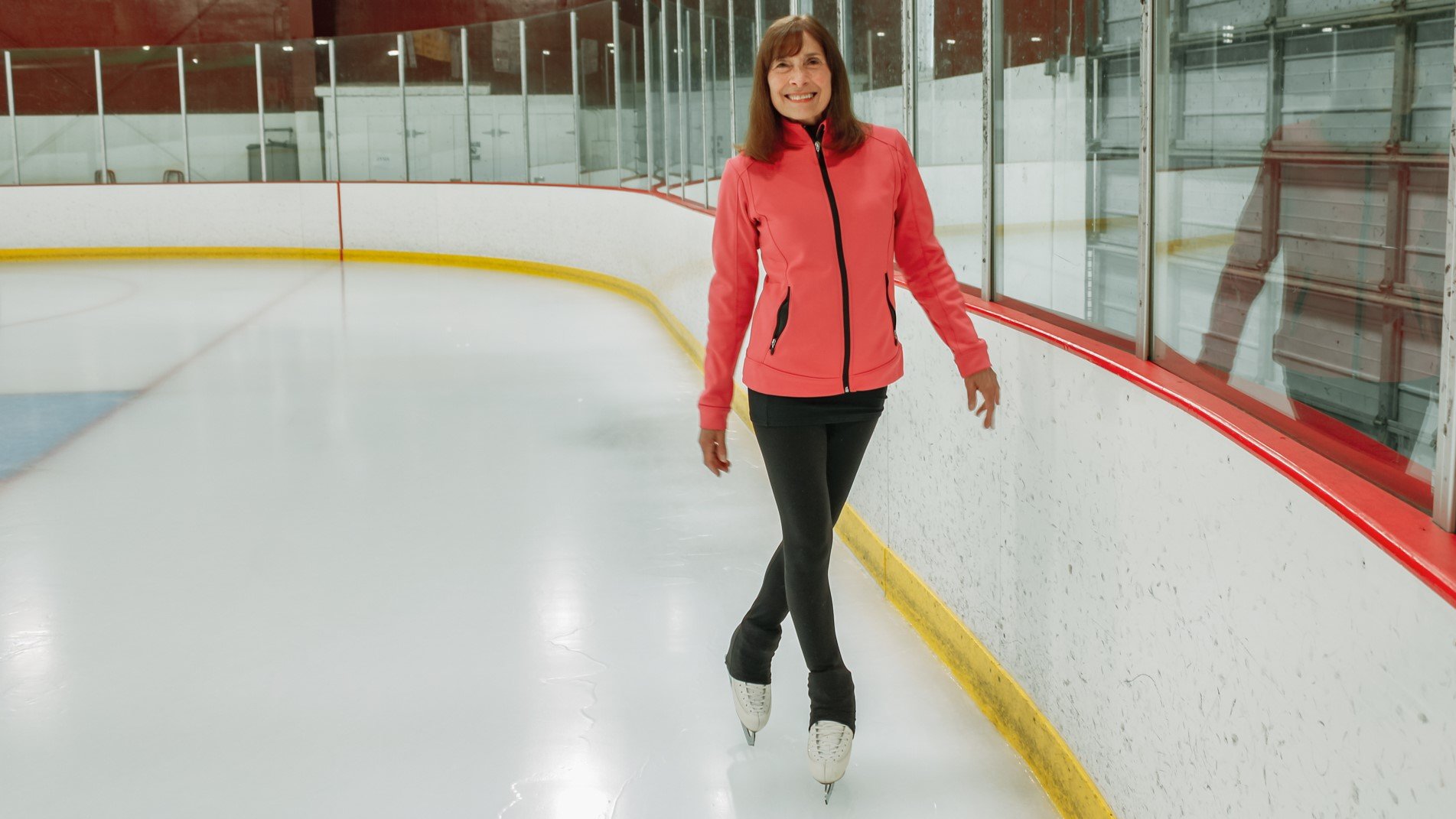By Robyn Clarke
Michele Cooper’s journey with figure skating began a little later than most. The mother of three was in her mid-40s the first time she laced up a pair of skates. However, she was no stranger to an ice rink. Her boys had been involved with hockey for years.
“I was always in the rink forever,” she said. “And I said, ‘You know, I’ve always wanted to learn how to skate.’ So I signed up for group lessons.”
Cooper was the only adult in the class, but she didn’t mind.
“I was just thrilled to be out there,” she said. “And the coach was wonderful ... she didn’t soften anything for me. She wanted me to do it right and the kids accepted me. There was no tension at all.”
At the coach’s suggestion, she joined a skating club and hired a private coach, whom she credits with honing her skills.
“He goes, ‘I don’t know why you’re having so much trouble with that toe loop jump. You obviously know your skills,’” she remembered. “He goes, ‘Do it the opposite direction.’”
His suggestion worked. Cooper was able to land the jump, and over the next few years, her late-blooming career soared.
In 1995, she placed third in her event at the first U.S. Adult Figure Skating Championships in Wilmington, Delaware. She brought home the gold medal in 1999.
Those few years saw Cooper develop more confidence. At her first competition in 1995, she was a bundle of nerves. 1999, however, was a different story.
“The year I won my division in 1999, I just bounced right out there on the ice and said, ‘Here I am,’” she said. “I had conquered my nerves.”
Cooper credits the change with the life lessons she’d learned from figure skating.
“For me, skating gave me a sense of accomplishment, of personal growth, of always moving the mark up a little bit, saying, ‘Now I’m going to do this. Now I’m going to conquer this.’ And I had coaches who taught me not just about skating, but about life. They really overlap.”
Cooper went on to witness the intersection of skating and life in a different way beginning in 2010, when she began experiencing unexplained fatigue and pain.
“I was just sick all the time, and everything hurt,” she said.
Doctors diagnosed her with lupus, an autoimmune disease that causes the body’s immune system to begin attacking tissues and organs. The drug they prescribed “worked wonderfully,” in Cooper’s words, and she continued to live life to the fullest, thriving in her new job as a corporate writer and editor.
However, adversity would soon strike again.
In 2017, following routine cataract surgery, Cooper contracted a rare and aggressive infection. Doctors were unable to identify the complication, and after multiple procedures failed to make it go away, they removed her left eye.
Learning to live with only one eye was an adjustment. For the first few months following the procedure, Cooper wore an eye patch in public. Though she did her best to turn a deaf ear to others’ comments, some were impossible not to notice.
“I remember going to the store once with my black patch on my eye and a little girl says, ‘Look, Mommy, a pirate,’” she said. “It was very difficult for me to be in public without the eye.”
Receiving a custom prosthetic eye a few months later made leaving the house less of a challenge. The glass orb looks identical to Cooper’s real eye, from its coloration to its veins.
Cooper burst into tears upon seeing the prosthetic. “I cried and cried and cried,” she said. “I was just overwhelmed.”
After the surgery, Cooper took a hiatus from skating, but she always knew she would get back on the ice.
“It was extremely important [for me to keep skating],” she said. “I love — I love the feel of it, the accomplishment, the learning curve. Sometimes, I surprise myself with all I’ve accomplished with starting so late.”
Cooper’s story is a testament that it’s never too late to begin, and that you never know what might unfold if only you have the courage to try something new.


